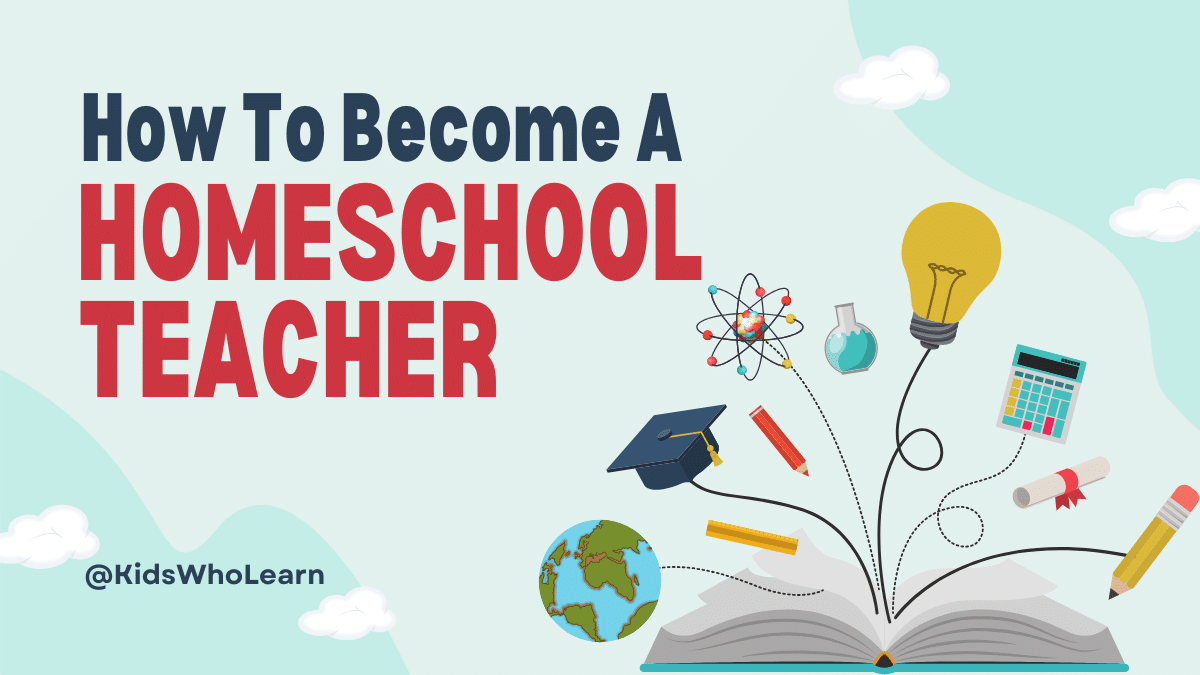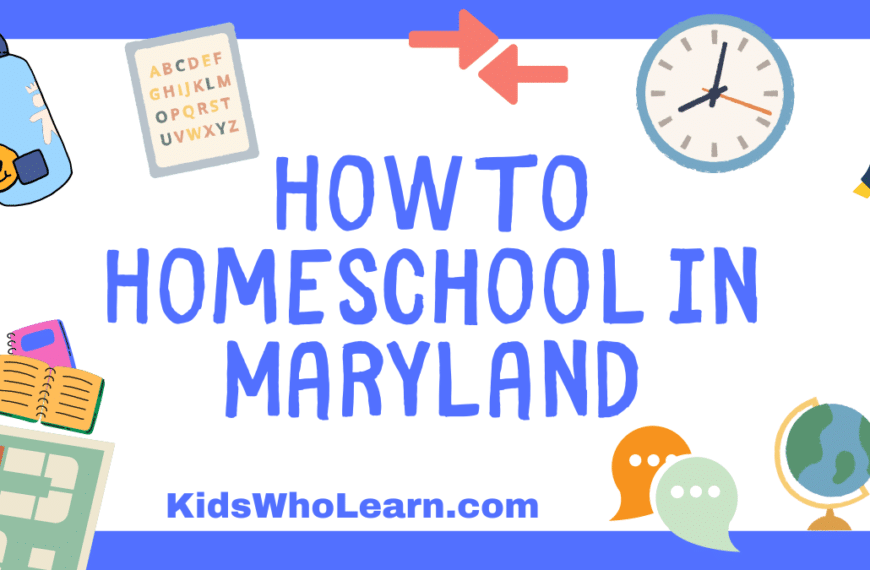Homeschooling has become an increasingly popular choice for families in Pennsylvania. If you’re considering this educational path for your children, it’s essential to understand the state’s regulations and requirements to create a well-rounded educational experience. Homeschooling in PA can be a fulfilling journey for both you and your children, offering flexibility and the opportunity to customize their learning experience according to their needs.
As you delve into the world of homeschooling, you’ll need to familiarize yourself with Pennsylvania’s homeschool laws, which can guide you through the process. From structuring your homeschool day to selecting the most suitable curriculum, these guidelines are designed to ensure your child’s success. Additionally, it’s key to allow your homeschooled children to have socializing opportunities as this will help in their holistic development.
Key Takeaways
- Familiarize yourself with Pennsylvania’s homeschooling laws and regulations.
- Plan a structured homeschool day and select an appropriate curriculum.
- Ensure socializing opportunities are available for your homeschooled children.
Understanding Homeschooling in PA
Defining Homeschooling
Homeschooling is the practice of educating your children at home, rather than sending them to a public or private school. This allows you, as the parent or guardian, to create a personalized curriculum and learning environment that suits your child’s needs and interests. In Pennsylvania, homeschooling is a legal and feasible option for families looking to take control of their children’s education.
Why Choose Homeschooling?
There are several reasons why you might choose to homeschool your child in Pennsylvania:
- Flexibility in learning: Homeschooling allows you to adapt the curriculum to your child’s learning style, pace, and interests, ensuring that they get the most out of their education.
- Stronger family bonds: Spending more time together can strengthen the relationship between you and your child, creating a nurturing and supportive learning environment.
- Avoiding negative school environments: Some parents choose homeschooling to protect their children from bullying, peer pressure, or unhealthy competition found in traditional schools.
- Enhanced academic opportunities: Homeschooling can provide your child with the opportunity to dive deep into subjects they’re passionate about, and even explore topics not covered in traditional curriculums.
Legal Requirements
When homeschooling in Pennsylvania, there are a few legal requirements that you need to be aware of:
- Submit an affidavit: Before beginning to homeschool, you must submit an affidavit to your local school district notifying them of your intent to homeschool. This affidavit should include an outline of your intended education objectives for the school year.
- Establish a curriculum: You’re required to provide instruction in the following subjects: English (including language, literature, speech, and composition), mathematics, science, geography, history (including U.S. and Pennsylvania), civics, health, physical education, music, and art.
- Keep records: Maintain a log or portfolio of your child’s work, attendance, and standardized test results. This will help you track your child’s progress and is necessary for annual evaluations.
- Annual evaluations: You will need to have a certified teacher evaluate your child’s progress every year. The evaluator will review your child’s work, interview the child, and provide a written report indicating whether the child’s education is appropriate. This report should be submitted to the local school district.
By following these guidelines and understanding the legal requirements of homeschooling in Pennsylvania, you can take charge of your child’s education and create a personalized learning experience tailored to their needs.
Getting Started
Notice of Intent to Homeschool
When you decide to homeschool in Pennsylvania, your first step is to submit a notice of intent to your local school district. This should be done by August 1st, or prior to the start of the school year. If you start homeschooling during the school year, submit the notice of intent as soon as possible.
The notice should include the following information:
- Name, address, and phone number of the parent or guardian responsible for the homeschool program
- Name and age of each homeschooled child
- A signed affidavit stating that the program will be in compliance with state laws
After submission, you’ll receive a packet containing report forms and additional requirements from the school district.
Educational Objectives
Next, plan the educational objectives to guide your homeschooling journey. These should align with your child’s age, grade level, and abilities. Pennsylvania law requires that a homeschool curriculum cover the following subjects:
| Grade Level | Required Subjects |
|---|---|
| K-8 | English, arithmetic, social studies, science, health, physical education, music, and art |
| 9-12 | English, arithmetic, science, social studies, health, physical education, art, and humanities |
To ensure your child achieves these objectives, consider utilizing the following resources:
- Local libraries and museums
- Online resources such as educational websites, videos, and forums
- Homeschool support groups and co-ops
Remember to maintain a friendly and encouraging atmosphere as you introduce your child to this new learning experience. With dedication and careful planning, homeschooling in Pennsylvania can be a rewarding and successful venture for you and your child.
Structuring the Homeschool Day
Creating a Schedule
To successfully homeschool in Pennsylvania, it’s important to create a daily schedule for your child. Start by outlining the core subjects (such as Mathematics, English, Science, and Social Studies) and elective subjects (like Art, Music, or Physical Education). Allocate time for each subject and decide on the sequence of subjects for the day.
- Morning Routine: Establish a morning routine, such as waking up, getting dressed, and having breakfast.
- Breaks: Schedule short breaks between subjects for relaxation and a longer lunch break.
- Independent Study Time: Set aside time for independent study or projects, giving your child a chance to explore their interests.
Balancing Core and Elective Subjects
The key to a well-rounded homeschool education is balancing core and elective subjects. Core subjects are essential for building foundational skills, while electives cater to your child’s unique interests and abilities.
- Core Subjects: Aim to devote equal time to each core subject, ensuring that your child meets the Pennsylvania homeschooling requirements.
- Elective Subjects: Choose electives that align with your child’s interests, strengths, and future goals. Allocate time for electives daily or several times a week, depending on the subject’s nature and your child’s preference.
Additional Activities
Incorporating additional activities outside of academics can enrich your child’s homeschool experience in Pennsylvania.
- Field Trips: Plan field trips to local museums, nature centers, or historical sites to enhance their understanding of subjects and provide hands-on learning experiences.
- Extracurricular Activities: Encourage your child to participate in extracurricular activities like sports, clubs, or community service to develop social skills and explore new interests.
- Socialization Opportunities: Arrange playdates, homeschool co-op gatherings, or virtual meetups with other homeschooling families to foster friendships and social skills.
By following these tips, you can create a structured, balanced, and enjoyable homeschool day for your child in Pennsylvania.
Curriculum Planning
Choosing a Curriculum
When planning your homeschooling journey in Pennsylvania, it’s essential to select the right curriculum for your child. As a friendly reminder, there are no specific curriculum requirements in PA; you have the freedom to choose what works best for your child.
To start, consider your child’s learning style and interests. You can explore different homeschooling styles such as Charlotte Mason, Montessori, or unschooling, depending on your educational philosophy. Additionally, you can research curriculum providers or even create a custom curriculum tailored to your child’s needs. Online resources and homeschooling communities can be valuable sources of information and support during your decision-making process.
Resource Utilization
Maximizing the use of resources is crucial for a successful homeschooling experience. There are various resources at your disposal, both online and offline, to enrich your child’s learning:
- Curricular materials: These may include textbooks, workbooks, and educational websites. Be open to mixing and matching resources from different providers to meet your child’s unique needs.
- Library and local resources: Make use of your local library and take advantage of the books, periodicals, and multimedia materials available. Additionally, local museums, parks, and historical sites can serve as excellent resources for field trips and hands-on learning experiences.
- Online resources: Utilize online platforms and homeschooling groups for support, advice, and networking opportunities. This might include forums, blogs, or even social media groups dedicated to homeschooling in PA.
As you plan your curriculum and gather resources, remember to be flexible in your approach. Regularly evaluate and reassess your child’s progress, making any necessary adjustments along the way. With dedication and resourcefulness, you can create a stimulating and effective learning environment for your homeschool journey in Pennsylvania.
Evaluation and Accountability
Regular Assessments
As you homeschool in Pennsylvania, it is important to conduct regular assessments to measure your child’s learning progress. These assessments will help you identify the strengths and weaknesses of their education and fine-tune your teaching approach. To make the process easy and effective, consider the following:
- Administer standardized tests at least once a year, covering subjects like math, language arts, and science. This will help you gauge your child’s progress compared to their peers in the same grade level.
- Conduct informal assessments such as quizzes, oral discussions, and writing assignments. These provide insights into your child’s understanding of specific concepts.
- Make use of online resources like digital learning platforms that offer quizzes, practice tests, and other assessments designed for homeschoolers.
Portfolio Reviews
Another key aspect of homeschooling in PA is maintaining a thorough and organized portfolio of your child’s work. This serves as a valuable resource for demonstrating their learning progress and efforts. Here are some tips for doing this effectively:
- Keep samples of your child’s work in a binder or digital folder. This may include written assignments, art projects, and any other materials relevant to their education.
- Document their study achievements in a concise format, such as a summary, a list of completed courses, or a transcript.
- Conduct a yearly review of your child’s portfolio with a qualified evaluator. This person should have a background in education and be able to provide constructive feedback on their progress.
Remember, keeping up with regular assessments and portfolio reviews helps ensure that your child is on track with their learning and that you, as the homeschooling parent, stay accountable for providing a well-rounded education.
Socializing Opportunities for Homeschooled Children
Local Homeschool Groups
Joining a local homeschool group is a fantastic way for your child to socialize with other homeschooled kids. These groups often organize various activities, such as:
- Playdates
- Study groups
- Special-interest clubs
- Community service projects
Search online or ask around in your community to find homeschool groups near you. Participating in these groups not only enriches your child’s social experience but also offers support and resources for your homeschooling journey.
Field Trips and Excursions
Field trips and excursions provide valuable opportunities for your homeschooled child to interact with their peers, learn about new topics, and explore their surroundings. Some ideas for field trips include:
- Museums
- Historical sites
- Nature centers
- Cultural events
To arrange field trips, collaborate with other homeschooling families in your area or contact local businesses and organizations that may offer educational tours. Remember to keep an open mind and be creative, as new experiences can lead to new friendships for your homeschooled child.
Conclusion
As you continue on your homeschooling journey in Pennsylvania, remember to stay informed and organized. Keep track of your student’s records, comply with state requirements, and adapt your teaching style to suit their needs. Remember, you’re not alone in this process, and there are plenty of resources available to support you.
Stay connected with the homeschooling community for advice, support, and camaraderie. Join homeschooling groups, attend conferences, and share experiences with others who are in the same situation. By staying engaged, you’ll not only improve your teaching skills but also enrich your family’s educational experience.
Lastly, embrace the opportunity to be an integral part of your child’s education. Homeschooling in Pennsylvania offers the flexibility and autonomy to tailor educational experiences to your family’s unique situation. Cherish the time you spend together, and celebrate your child’s accomplishments along the way.
Frequently Asked Questions
What subjects are required for homeschooling in PA?
In Pennsylvania, you’re required to cover the following subjects in your homeschool curriculum: English (reading, writing, spelling, and grammar), Mathematics, Science, Social Studies (Civics, Geography, and History), Arts and Humanities, Health and Physical Education, and Safety Education. High school students should also include additional subjects depending on their desired career or college path.
How do I find a homeschool evaluator in Pennsylvania?
To find a homeschool evaluator in Pennsylvania, you can start by asking for recommendations from local homeschooling support groups or online forums. You can also check the Pennsylvania Homeschoolers website, which provides a list of approved evaluators. When you find potential evaluators, don’t hesitate to interview them and ensure they’re a good fit for your family’s needs.
What are the kindergarten requirements for homeschooling in PA?
In Pennsylvania, children who are age 6 by September 1 must begin compulsory education. While there’s no specific kindergarten program requirement for homeschooling, you should start incorporating age-appropriate lessons into your curriculum, covering the required subjects mentioned earlier.
What is the cost of homeschooling in Pennsylvania?
The cost of homeschooling in Pennsylvania can vary depending on the materials, curriculum, and resources you choose for your child’s education. It’s possible to homeschool on a budget by using free online resources, buying used curriculum materials, and taking advantage of free community resources like libraries and parks. However, some families opt for more expensive curriculum packages or hire tutors, which can increase the cost.
How do I complete a PA homeschool affidavit?
To complete a Pennsylvania homeschool affidavit, you’ll need to include your child’s basic information, a list of the subjects you plan to cover, and any educational objectives. You’ll also need to prepare a portfolio of your child’s work, which must be reviewed by a qualified evaluator. Once the evaluator has signed off on your child’s progress, submit the affidavit and evaluation to your local school district’s superintendent.
What are the graduation requirements for homeschooling in PA?
In Pennsylvania, homeschooled students are required to complete a minimum of 21 credits to graduate. The specific requirements include: four credits in English, three credits in Mathematics, three credits in Science, three credits in Social Studies, two credits in Arts and Humanities, and six credits in electives. Additionally, students must demonstrate mastery of the required subjects through their coursework and evaluations.







